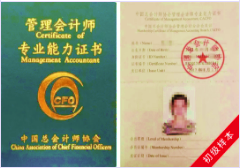英语六级40天突破讲义与笔记之阅读理解(5)
A new era is upon us. Call it what you will: the service economy, the information age, the knowledge society. It all translates to a fundamental change in the way we work. Already we’ re partly there. The percentage of people who earn their living by making things has fallen dramatically in the Western World. Today the majority of jobs in America, Europe and Japan (two thirds or more in many of these countries) are in the service industry, and the number is on the rise. More women are in the work force than ever before. There are more part-time jobs. More people are self-employed. But the breadth of the economic transformation can’ t be measured by numbers alone, because it also is giving rise to a radical new way of thinking about the nature of work itself. Long-held notions about jobs and careers, the skills needed to succeed, even the relation between individuals and employers-all these are being challenged.
We have only to look behind to get some sense of what may lie ahead. No one looking ahead 20 years possibly could have foreseen the ways in which a single invention, the chip, would transform our world thanks to its applications in personal computers, digital communications and factory robots. Tomorrow’ s achievements in biotechnology, artificial intelligence or even some still unimagined technology could produce a similar wave of dramatic changes. But one thing is certain: information and knowledge will become even more vital, and the people who possess it, whether they work in manufacturing or services, will have the advantage and produce the wealth. Computer knowledge will become as basic a requirement as the ability to read and write. The ability to solve problems by applying information instead of performing routine tasks will be valued above all else. If you cast your mind ahead 10 years, information services will be predominant. It will be the way you do your job.
25. Which of the following best summarized the main idea of the passage?
A) Musical instruments developed through the years will sooner later be replaced by computers.
B) cannot be passed on to future generation unless it is recorded.
C) Folk songs cannot spread far unless they are printed on music sheets
D) The development of music culture is highly dependent or its material aspect
Material culture refers to the touchable, material "things"-physical objects that can be seen, held, felt, used-that a culture produces. Examining a culture’s tools and technology can tell us about the group’s history and way of life. Similarly, research into the material culture of music can help us to understand the music-culture. The most vivid body of "things" in it, of course, are musical instruments. We cannot hear for ourselves the actual sound of any musical performance before the 1870s when the phonograph was invented, so we rely on instruments for important information about music-cultures it the remote past and their development. Here we have two kinds of evidence: instruments well preserved and instruments pictures in art. Through the study of instruments, as well preserved Paintings, written documents, and so on, we can explore the movement of music from the Neat East to China over a thousand years ago, or we can outline the spread of Near eastern influence to Europe that results in the development of most of the instruments on the symphony orchestra.
Sheet music or printed music, too, is material culture. Scholars once defined
folk music-cultures as those in with people learn and sing music by ear rather than from print, but research show mutual influence among oral and written sources during the past few centuries in Europe, Britain, and America, printed versions limit variety because they tend to standardize any song, yet they stimulate people to create new and different songs. Besides, the ability to read music notation has a far-reaching effect on musicians and, when it becomes widespread, on the music-culture as a whole.
One more important part of music’s material culture should be singled out the influence of the electronic media-radio, record player, tape recorder, television, and videocassette, with the future promising talking and singing computers and other developments. This all part of the "information revolution," a twentieth century phenomenon as important as the industrial revolution was in the nineteenth. These electronic media are not just limited to modem nations; they have affected music-cultures all over the globe.
25. What is the passage mainly about?
A) different ways of treating socio-cultural elements in the three new English dictionaries.
B) A comparison of people’s opinions on the cultural content in the three new English dictionaries.
C) The advantages of the BBC dictionary over Oxford and Longman.
D) The user-friendliness of the three new English dictionaries.
Three English dictionaries published recently all lay claim to possessing a "new" feature. The BBC English Dictionary contains background information on l, 000 people and places prominent in the news since 1988; the Oxford Advanced Learner’s Dictionary: Encyclopedic Edition is the OALD plus encyclopedic entries; the Longman Dictionary of English Language and Culture is the LME plus cultural information.
The key fact is that all three dictionaries can be seen to have a distinctly "cultural" as well as language learning content. That being said, the way in which they approach the cultural element is not identical, making direct comparisons between the three difficult.
While there is some common ground between the encyclopedic and cultural entries for the Oxford and Longman dictionaries, there is a clear difference. Oxford lays claim to being encyclopedic on content whereas Longman distinctly concentrates on the language and culture of the English-speaking world. The Oxford dictionary can therefore stand more vigorous scrutiny for cultural bias than the Longman publication because the latter does not hesitate about viewing the rest of the world from the cultural perspectives of the English-speaking world. The cultural objectives of the BBC dictionary are in turn more distinct still. Based on an analysis of over 70 million words recorded from the BBC World Service and National Public Radio of Washington over a period of four years, their 1,000 brief encyclopedic entries are based on people and places that have featured in the news recently. The intended user they have in mind is a regular listener to the World Service who will have a reasonable standard of English and a developed skill in listening comprehension.
In reality, though, the BBC dictionary will be purchased by a far wider range of language learners, as will the other two dictionaries. We will be faced with a situation where many of the users of these dictionaries will at the very least have distinct socio-cultural perspectives and may have world views which are totally opposed and even hostile to those of the West. Advanced learners from this kind of background will not only evaluate a dictionary on how user-friendly it is but will also have definite views about the scope and appropriateness of the various sociocultural entries.
35. What is the passage mainly about?
A) Dressing for effect.
B) How to dress appropriately.
C) Managerial positions and clothing.
D) Dressing for the occasion.
Clothes play a critical part in the conclusions we reach by providing clues to who people are, who they are not, and who they would like to be. They tell us a good deal about the wearer’s background, personality, status, mood, and social outlook.
注:critical重要的
Since clothes are such an important source of social information, we can use them to manipulate people’s impression of us. Our appearance assumes particular significance in the initial phases of interaction that is likely to occur. An elderly middle-class man or woman may be alienated(疏远……) by a young adult who is dressed in an unconventional manner, regardless of the person’s education, background, or interests.
注:manipulate控制,操纵
课程推荐
- 中级会计职称普通班
- 中级会计职称特色班
- 中级会计职称精品班
- 中级会计职称实验班
| 课程班次 | 课程介绍 | 价格 | 购买 |
|---|---|---|---|
| 普通班 | 班次特色 |
240元/一门 450元/两门 680元/三门 |
购买 |
| 课程班次 | 课程介绍 | 价格 | 购买 |
|---|---|---|---|
| 精品班 | 班次特色 |
680元/一门 1200元/两门 1800元/三门 |
购买 |
- 中级会计职称机考模拟系统综合版
- 中级会计职称机考模拟系统实验版
| 模拟题库 | 题库介绍 | 价格 | 购买 |
|---|---|---|---|
综合版 |
题库特色 |
120元/一门 200元/两门 240元/三门 |
购买 |
| 模拟题库 | 题库介绍 | 价格 | 购买 |
|---|---|---|---|
| 实验版 | 题库特色 |
240元/一门 480元/两门 720元/三门 |
购买 |
最新新闻
网站地图
专业知识水平考试:
考试内容以管理会计师(中级)教材:
《风险管理》、
《绩效管理》、
《决策分析》、
《责任会计》为主,此外还包括:
管理会计职业道德、
《中国总会计师(CFO)能力框架》和
《中国管理会计职业能力框架》
能力水平考试:
包括简答题、考试案例指导及问答和管理会计案例撰写。
- 管理会计师PCMA 免费试听
- 中级管理会计师 免费试听
- 税务管理师 免费试听
- 智能财务师 免费试听
- 国际注册会计师 免费试听
- 国际财务管理师 免费试听
- 初级会计职称考试 免费试听
- 中级会计职称考试 免费试听
- 注册会计师考试 免费试听
- 全国外贸会计考试 免费试听
- 会计实务操作 免费试听
- 管理会计师 免费试听
-
初级会计职称招生方案
·特色班
·精品班
·实验班

初级会计职称网上辅导 -
中级会计职称招生方案
·普通班
·特色班
·精品班

中级会计职称网上辅导
专业知识水平考试:
考试内容以管理会计师(中级)教材:
《风险管理》、
《绩效管理》、
《决策分析》、
《责任会计》为主,此外还包括:
管理会计职业道德、
《中国总会计师(CFO)能力框架》和
《中国管理会计职业能力框架》
能力水平考试:
包括简答题、考试案例指导及问答和管理会计案例撰写。

 您现在的位置:
您现在的位置:




